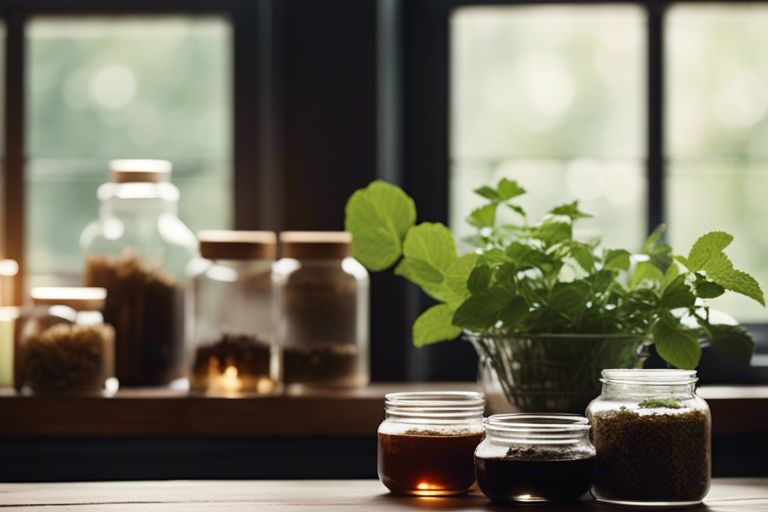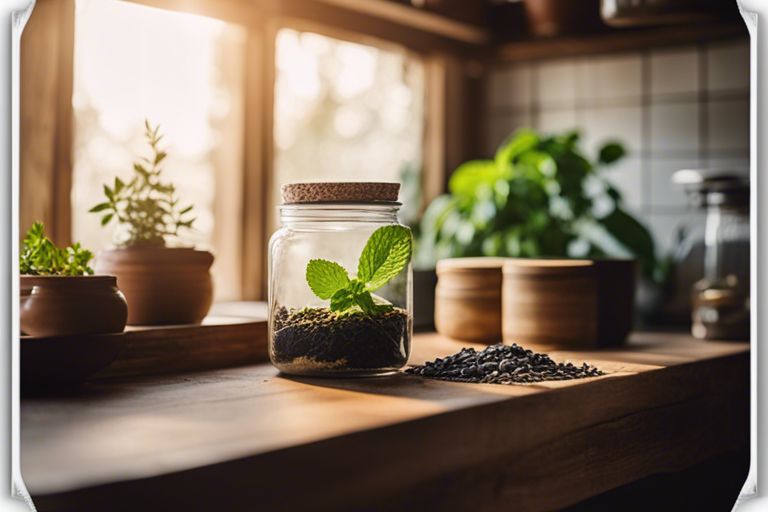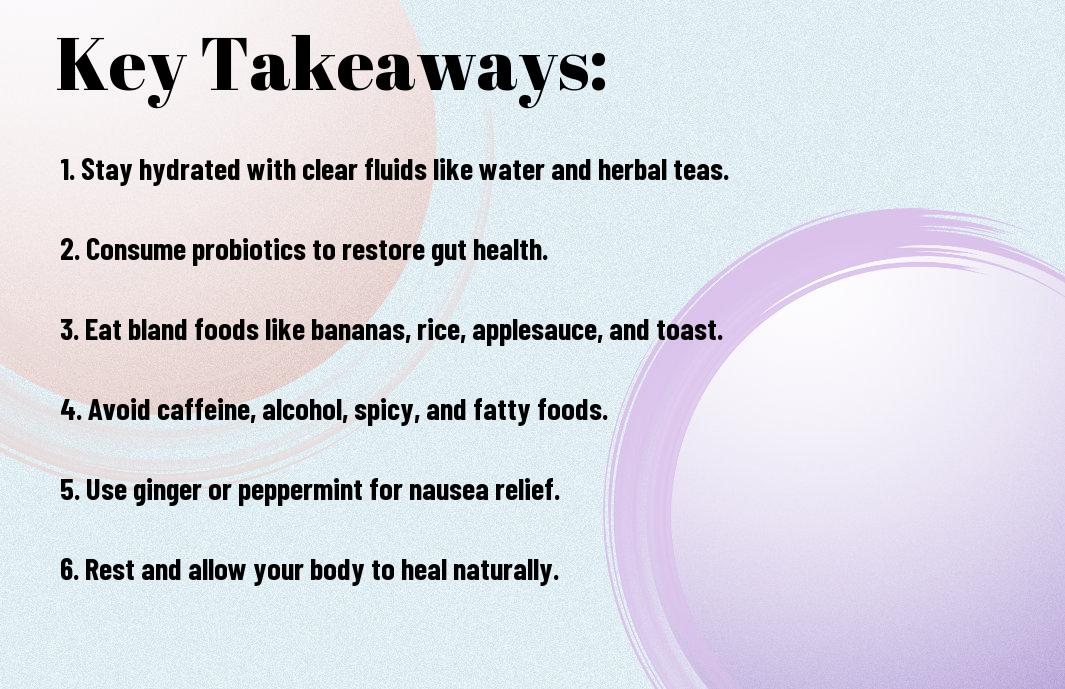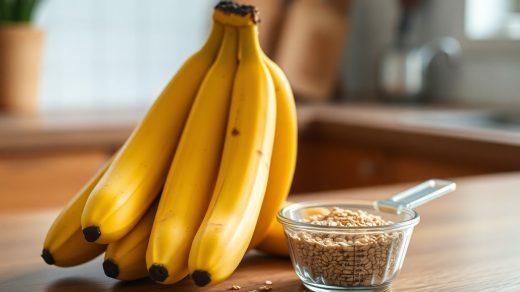Overwhelmed by food poisoning symptoms? You can heal naturally by utilizing remedies like ginger, peppermint, and probiotics. This article will guide you through the process of soothing your stomach and aiding your body’s recovery. For more information on food poisoning treatment options, check out Food Poisoning: Treatment Options. Let’s start your journey to feeling better!

Key Takeaways:
- Stay Hydrated: Drink plenty of water and clear fluids to help flush out toxins and prevent dehydration.
- Follow the BRAT Diet: Eat bananas, rice, applesauce, and toast to help ease stomach discomfort and promote healing.
- Use Herbal Remedies: Ginger, peppermint, and chamomile can help soothe digestive issues and reduce nausea associated with food poisoning.
Identifying Food Poisoning
The first step in healing from food poisoning is being able to recognize the symptoms. Food poisoning can be caused by consuming contaminated food or beverages that contain harmful bacteria, viruses, parasites, or toxins. Common Symptoms
Common Symptoms
Food poisoning can manifest with various symptoms, such as nausea, vomiting, diarrhea, abdominal cramps, and fever. These symptoms typically appear within a few hours to a few days after consuming the contaminated food. In more severe cases, you may experience dehydration, muscle aches, and blood in the stool.
Differentiating from Other Illnesses
Symptoms of food poisoning can sometimes be confused with those of other illnesses, such as the stomach flu or a viral infection. However, there are key differences that can help you distinguish between food poisoning and other illnesses. Food poisoning is usually linked to a recent meal, especially if others who ate the same food also exhibit symptoms. Additionally, symptoms of food poisoning tend to onset rapidly after consuming the contaminated food.
Natural Remedies for Food Poisoning
Rehydration Therapy
Food poisoning often leads to dehydration due to vomiting and diarrhea. Rehydration therapy is imperative to replace lost fluids and electrolytes. You can make a simple rehydration solution at home by mixing 1 teaspoon of salt and 3 teaspoons of sugar in 1 liter of clean water. Sip this solution frequently to stay hydrated and aid in recovery.
Herbal Teas for Soothing the Stomach
The calming properties of herbal teas can help soothe your upset stomach and provide relief from food poisoning symptoms. Peppermint tea, ginger tea, and chamomile tea are known for their digestive benefits and can help alleviate nausea and abdominal discomfort. Drinking warm herbal teas throughout the day can also keep you hydrated and promote relaxation.
The warmth of herbal teas can be comforting to your stomach, while the natural ingredients can help reduce inflammation and promote overall digestive health. Choose organic, caffeine-free teas for the best results.
Probiotics for Gut Health
This subsection focuses on incorporating probiotic-rich foods like yogurt, kefir, sauerkraut, and kimchi into your diet to promote a healthy gut microbiome. Probiotics are beneficial bacteria that can help restore the balance of your gut flora after a bout of food poisoning. Including these fermented foods in your meals can aid in digestion, boost your immune system, and support overall gut health.
Natural probiotic sources like yogurt contain live cultures that can replenish the good bacteria in your gut, which may have been depleted due to food poisoning. Adding probiotic-rich foods to your diet not only helps in recovery but also prevents future digestive issues.
Dietary Changes for Recovery
Bland Diet for Easy Digestion
One of the best ways to ease your digestive system after experiencing food poisoning is to follow a bland diet. This diet consists of simple, easily digestible foods that are gentle on your stomach. Examples of bland foods include plain rice, boiled potatoes, toast, applesauce, and bananas. These foods can help calm your irritated stomach and provide you with important nutrients to aid in your recovery.
Avoiding Irritating Foods
With food poisoning, it’s crucial to avoid certain foods that can further irritate your digestive system. Stay away from spicy foods, greasy or fried dishes, dairy products, caffeine, and alcohol. These items can exacerbate your symptoms and prolong your recovery time. Opt for plain, non-acidic foods instead to allow your stomach to settle and heal.
Easy-to-digest foods can help give your digestive system a break and promote quicker recovery from food poisoning. By eliminating irritating foods like spicy or fatty dishes, you can prevent further discomfort and allow your body to focus on healing. Remember to listen to your body and choose foods that make you feel better rather than worse during this time.
Incorporating Nutrient-Rich Foods
Anytime you’re recovering from an illness like food poisoning, it’s important to incorporate nutrient-rich foods into your diet. Opt for foods that are high in vitamins and minerals to support your immune system and aid in the healing process. Include plenty of fruits and vegetables, lean proteins like chicken or fish, whole grains, and probiotic-rich foods like yogurt or kefir to help restore balance in your gut.
Bland foods don’t have to be boring or lack nutrition. You can still enjoy a variety of nutrient-dense options while following a bland diet to recover from food poisoning. Focus on incorporating foods that are easy on your stomach but packed with important nutrients to help you feel better faster.
Home Remedies for Quick Relief
Ginger for Nausea and Inflammation
For quick relief from nausea and inflammation caused by food poisoning, ginger can be your best friend. Ginger is a natural remedy that has been used for centuries to alleviate digestive issues and reduce inflammation in the body. You can consume ginger in various forms, such as ginger tea, ginger supplements, or simply chewing on fresh ginger slices. The active compounds in ginger can help soothe your stomach, reduce nausea, and ease inflammation, making you feel better faster.
Activated Charcoal for Toxin Absorption
For quick relief from food poisoning symptoms, activated charcoal can be a powerful natural remedy. Activated charcoal works by binding to toxins in the stomach and intestines, helping to prevent their absorption into the bloodstream. You can find activated charcoal supplements in health food stores or pharmacies. It is important to follow the recommended dosage instructions to avoid any potential side effects.
Absorption of toxins in the gastrointestinal tract can help alleviate symptoms like diarrhea, cramps, and bloating. Activated charcoal is a natural and safe way to quickly reduce the impact of food poisoning on your body.
Rest and Relaxation Techniques
After experiencing food poisoning, your body needs time to rest and recover. Engaging in relaxation techniques such as deep breathing, meditation, or gentle yoga can help calm your mind and body, reducing stress and promoting healing. Make sure to drink plenty of fluids and get enough rest to allow your body to focus on fighting off the toxins and recuperating from the illness.
With proper rest and relaxation, you can support your body’s natural healing processes and recover from food poisoning more quickly. Remember to listen to your body and give it the care and attention it needs during this time of recovery.
Preventing Future Episodes
Safe Food Handling Practices
The key to preventing food poisoning in the future is to practice safe food handling at all times. Wash your hands thoroughly before and after handling food, especially raw meats. Use separate cutting boards for raw meats and produce to avoid cross-contamination. Make sure to cook foods to their recommended internal temperatures and refrigerate leftovers promptly.
Avoiding High-Risk Foods
For preventing future episodes of food poisoning, it is crucial to be mindful of high-risk foods such as raw or undercooked eggs, meats, seafood, and unpasteurized dairy products. These foods are more likely to harbor harmful bacteria that can cause foodborne illnesses. By avoiding these high-risk foods or ensuring they are cooked thoroughly, you can significantly reduce your risk of getting sick from food poisoning.
Handling risky foods properly is imperative to prevent food poisoning. Always follow proper storage guidelines for perishable items, such as keeping raw meats on the bottom shelf of the refrigerator to prevent juices from dripping onto other foods. When marinating meats, do so in the fridge and not at room temperature to avoid bacterial growth. By being vigilant with food handling practices, you can decrease the likelihood of future food poisoning episodes.
Boosting Immune Function
One way to prevent future episodes of food poisoning is to focus on boosting your immune function. Eating a balanced diet rich in fruits, vegetables, whole grains, and lean proteins can provide your body with imperative nutrients to support a healthy immune system. Additionally, staying hydrated, getting enough sleep, and managing stress can also help strengthen your body’s defenses against foodborne pathogens.
Episodes of food poisoning can be distressing, but by implementing these preventive measures and being mindful of safe food handling practices, you can significantly reduce your risk of experiencing foodborne illnesses in the future. Remember that your health is in your hands, and taking proactive steps to prevent food poisoning is key to enjoying safe and nourishing meals.

When to Seek Medical Attention
Severe Symptoms to Watch For
Attention: Unlike mild cases of food poisoning that typically resolve on their own within a few days, severe symptoms may indicate a more serious condition that requires medical attention. If you experience any of the following symptoms, it is crucial to seek help immediately:
- High fever (above 101.5°F)
- Bloody stools
- Prolonged vomiting that prevents you from keeping liquids down
- Significant dehydration, such as dark urine and dizziness
After experiencing any of these severe symptoms, do not hesitate to contact a healthcare provider or visit the nearest emergency room for prompt evaluation and treatment.
Risk Factors for Complications
Any underlying health conditions can increase your risk of developing complications from food poisoning. Factors that may elevate your risk include:
- Weak immune system (e.g., HIV/AIDS, cancer treatment)
- Elderly age
- Infants and young children
After considering these risk factors, it is important to monitor your symptoms closely and seek medical attention promptly if you fall into any of these high-risk categories.
Knowing When to Consult a Doctor
Complications: The most crucial factor in determining when to consult a doctor for food poisoning is your overall well-being. If you are experiencing severe symptoms, persistent vomiting or diarrhea, or dehydration that does not improve with oral rehydration solutions, it is time to seek medical help.

Conclusion
On the whole, natural remedies can be effective in helping you heal from food poisoning. Remember to stay hydrated, consume easily digestible foods, and try some of the remedies mentioned in this article such as ginger tea, apple cider vinegar, and activated charcoal. However, it is crucial to consult a healthcare professional if your symptoms persist or worsen, as severe cases of food poisoning may require medical treatment.
Q: What are some natural remedies for food poisoning?
A: Some natural remedies for food poisoning include ginger tea, activated charcoal, apple cider vinegar, probiotics, and herbal teas like peppermint or chamomile.
Q: Is it safe to treat food poisoning at home?
A: In most cases, mild food poisoning can be safely treated at home with natural remedies and plenty of rest. However, if symptoms persist or worsen, it is important to seek medical attention.
Q: How can I prevent food poisoning in the first place?
A: To prevent food poisoning, practice good food hygiene by washing hands and surfaces regularly, cooking meat and eggs thoroughly, refrigerating perishable foods promptly, and avoiding cross-contamination between raw and cooked foods.


